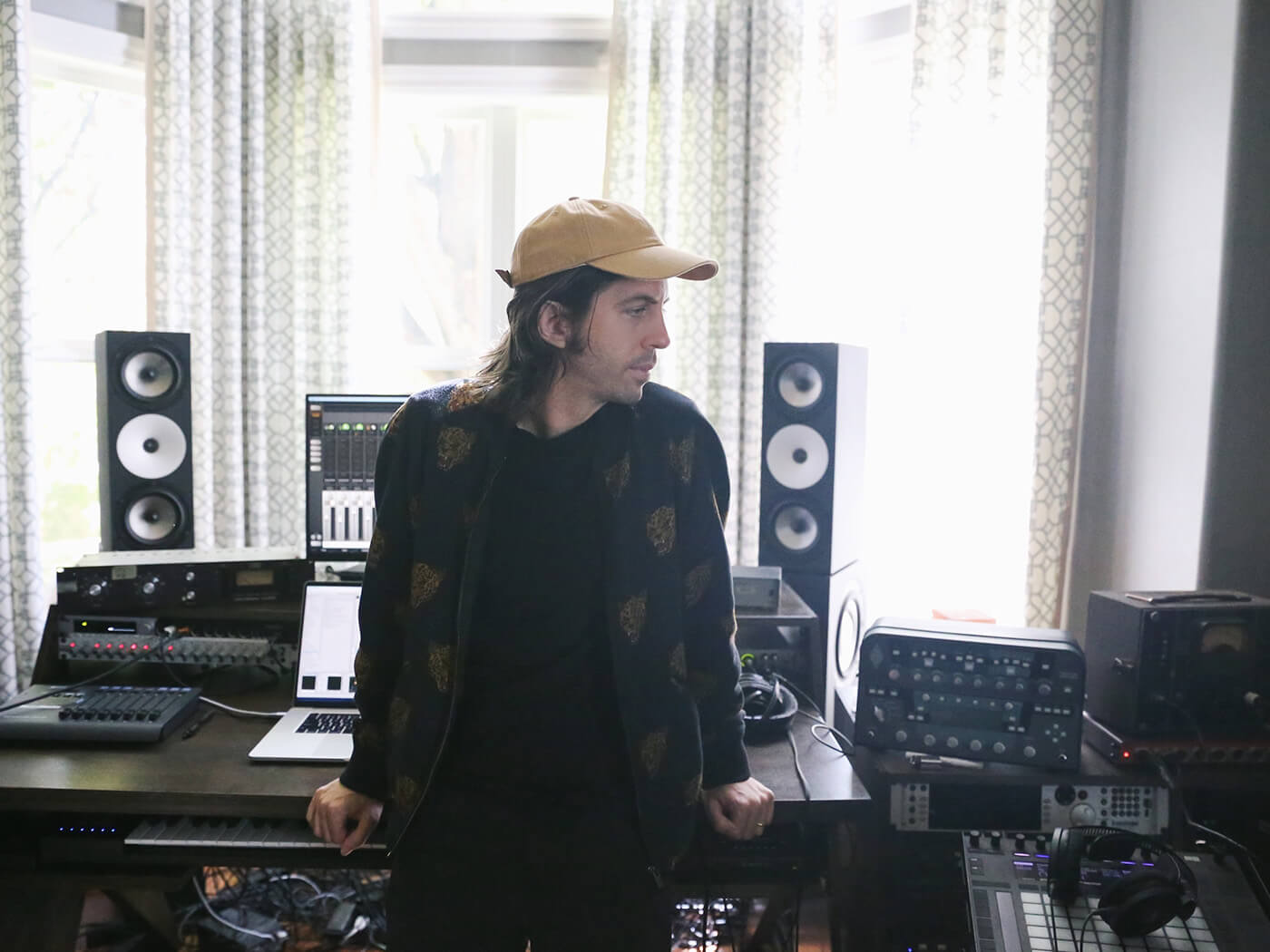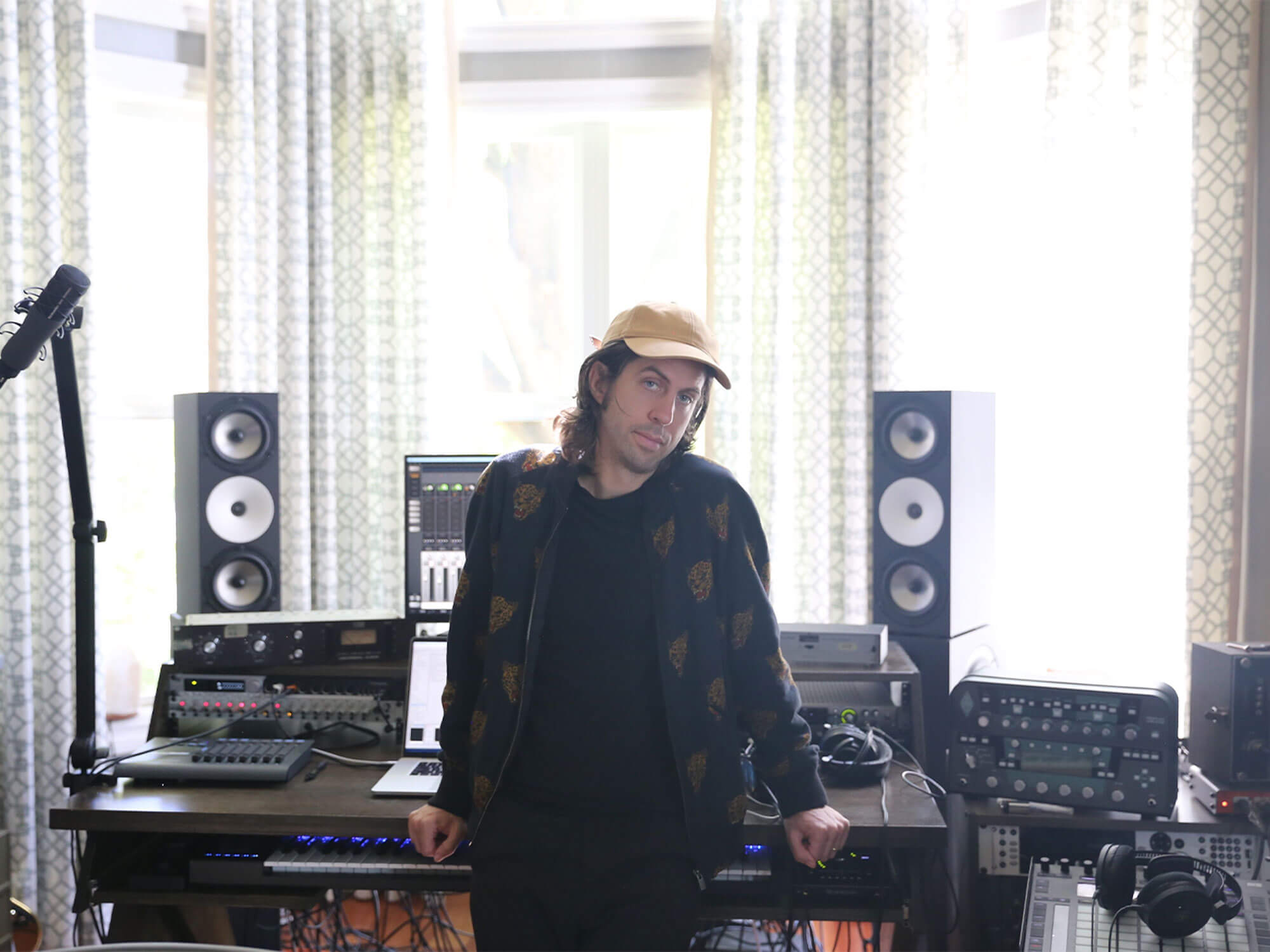
Show Off Your Studio: Imagine Dragons’ Wayne Sermon on how Rick Rubin impacted the band’s fifth album
”There are very few people I’ve met like Rick Rubin – maybe Hans Zimmer is the only other person I’ve met that can match his energy.“
Image: Alexandra Sermon
You know Imagine Dragons, right? How could you not? The award-winning American four-piece has topped charts around the world, starting with their 2012 EP Continued Silence, featuring the double-platinum single It’s Time. One year later, their diamond-selling single Radioactive propelled them further into the limelight, snatching up a Grammy for Best Rock Performance and cementing their place as a mainstay in alternative music. At the end of 2021, the band released their fifth album, Mercury – Act 1, which debuted at No.9 on the Billboard 200 and in the top five across other Billboard charts. For this album, music production titan Rick Rubin lent a hand in the songwriting.
Imagine Dragons self-produce and compose much of their work, each having a home setup that allows them to lay down and share ideas. Guitarist, synth player and pianist Wayne Sermon has transformed his home office into a studio space and has some pretty enviable gear, despite the studio’s modest size. Wayne invites us in and tells us how Rick Rubin impacted Mercury – Act 1, why he regrets not buying a Yamaha CS-80, and why – despite being a self-confessed gear-head – he believes it’s less about the gear and more about the song.
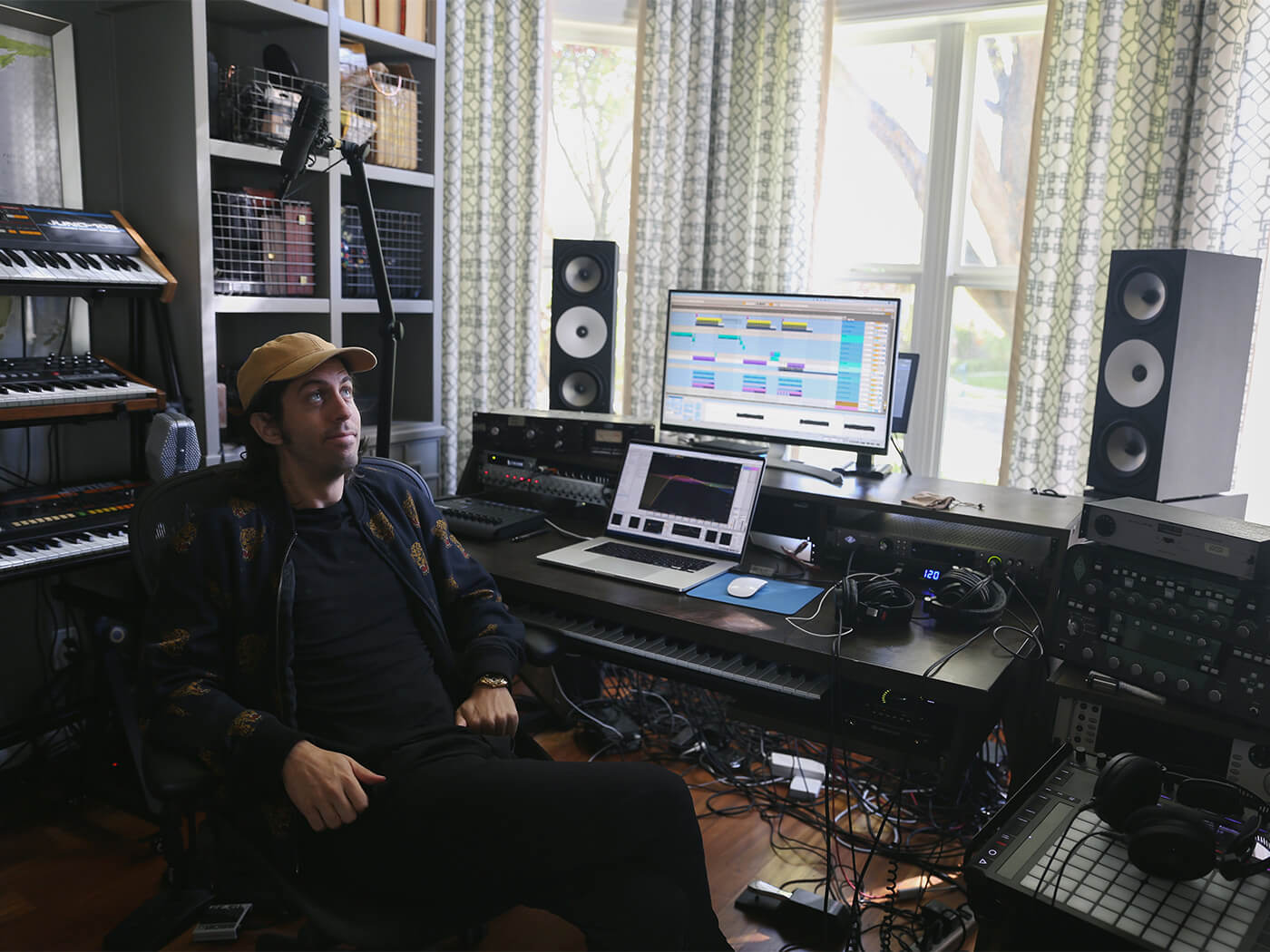
Hey Wayne! Congratulations on the fifth Imagine Dragons album. This one was a little different, we hear. Did collaborating remotely impact the creation of Mercury – Act 1?
We were planning a break regardless, but this ended up pushing everything back even more. We heard a lot of our musician friends on the road had to just pack it up halfway through a tour. It’s been a pretty brutal time for the whole industry, obviously. But as far as creativity goes, we send stuff remotely all the time anyway, so that was actually okay and not too different in the early writing stages. Rick Rubin was definitely a big part of the sound though.
What effect did Rick Rubin have on this album?
Rick is a special human; warm, intelligent, and a complete lack of ego. There are very few people I’ve met like him – maybe Hans Zimmer is the only other person I’ve met that can match his energy. He has impeccable taste in songwriting. He can tell you immediately if a song is worth pursuing or not; he gets to the heart of things so quickly. And the guy can really hear. I mean, he really has a great set of ears and can hear things in songs I didn’t notice after sitting on them for two years. It was fun to have a figure like him in the room. We’ve never had that kind of presence before. He felt like an experienced guide and we put a lot of trust in his opinions.
Imagine Dragons discography has taken you and your bandmates to dazzling heights. How do you alleviate pressure to deliver music that’s consistent with previous releases?
We haven’t found a way to alleviate it yet! To tell you the truth, it’s stressful as hell and keeps us up at night every time, even after over 10 years together. Our first album was easier because we weren’t sure who’d even listen to it. These days, we just try not to think about it, and put our heads down. Our fans haven’t tied us down too much into any one thing, so we do feel a certain measure of creative freedom in that way.
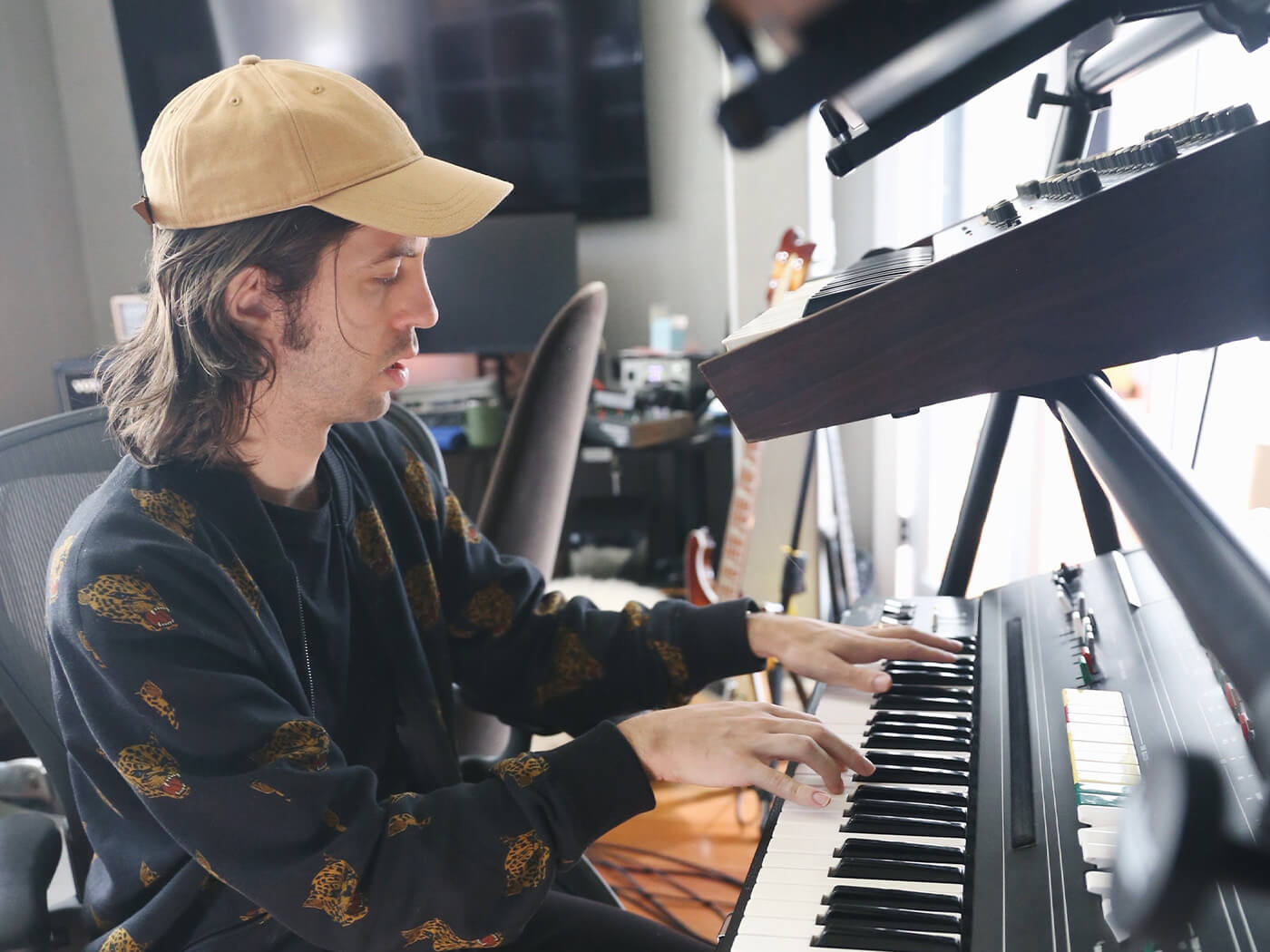
Can you tell us a bit about the studio?
The band has a big space in downtown Las Vegas, but that only got used for a handful of sessions, such as on Enemy and My Life. We did most of our stuff in our own studio spaces, sending files back and forth. My home studio is probably the smallest of the group. I just turned the study in my house into a little space for myself so it feels pretty cramped at times, but it works.
How do you use your studio?
It’s definitely function over form here. I wouldn’t win any design awards – it was born out of pure necessity. I could use more room treatment for sure. I went to Goodwill and got tons of old books to act like a giant bass trap.
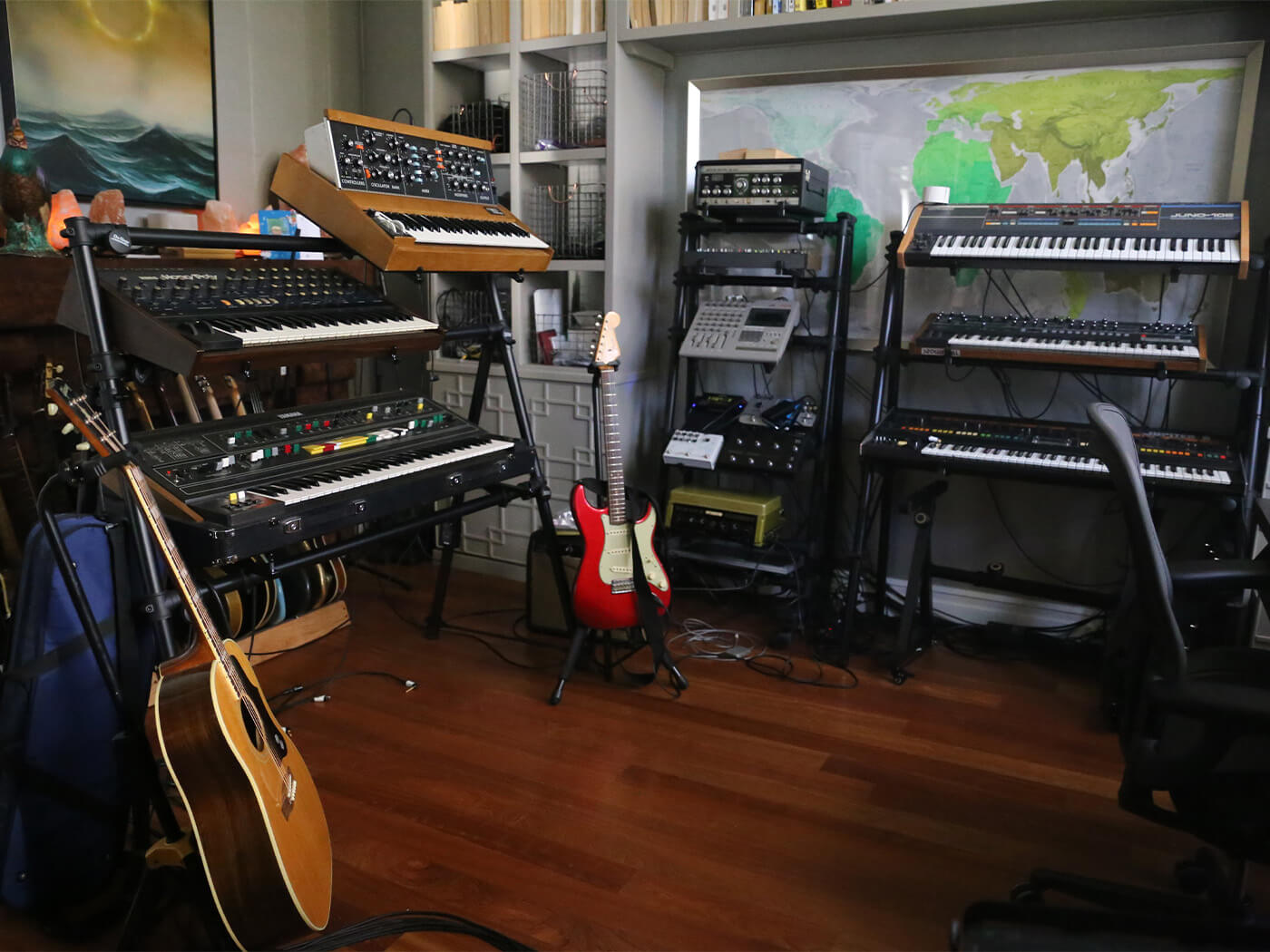
I’m lucky to have a lot of the toys I dreamed about as a kid, especially vintage guitars, synths, and echoes like the Binson Echorec. I just feed them all into this handy Speck x.sum line mixer, then straight into my Apollo.
Which DAW do you use?
I use Ableton Live for pretty much everything. I’ve tried them all. Logic Pro is awesome, and Cubase is powerful too. But Ableton does things nothing else does. Drum, Instrument, and Effects Racks are unbelievably powerful, sampling is a breeze, and the audio and MIDI editing is so fast and intuitive. Making tracks is quick and inspiring.
It’s not perfect though. So many people use it as their only DAW now – not just a live tool – and I wish they’d take the full leap. It would be amazing to have little stuff that every other DAW has, like being able to hide/deactivate tracks, lock audio to timecode for film scoring I’m doing, having a real mix window, and ARA support. We did get track comping recently though so, hey, they’re headed in the right direction. Okay, rant over!
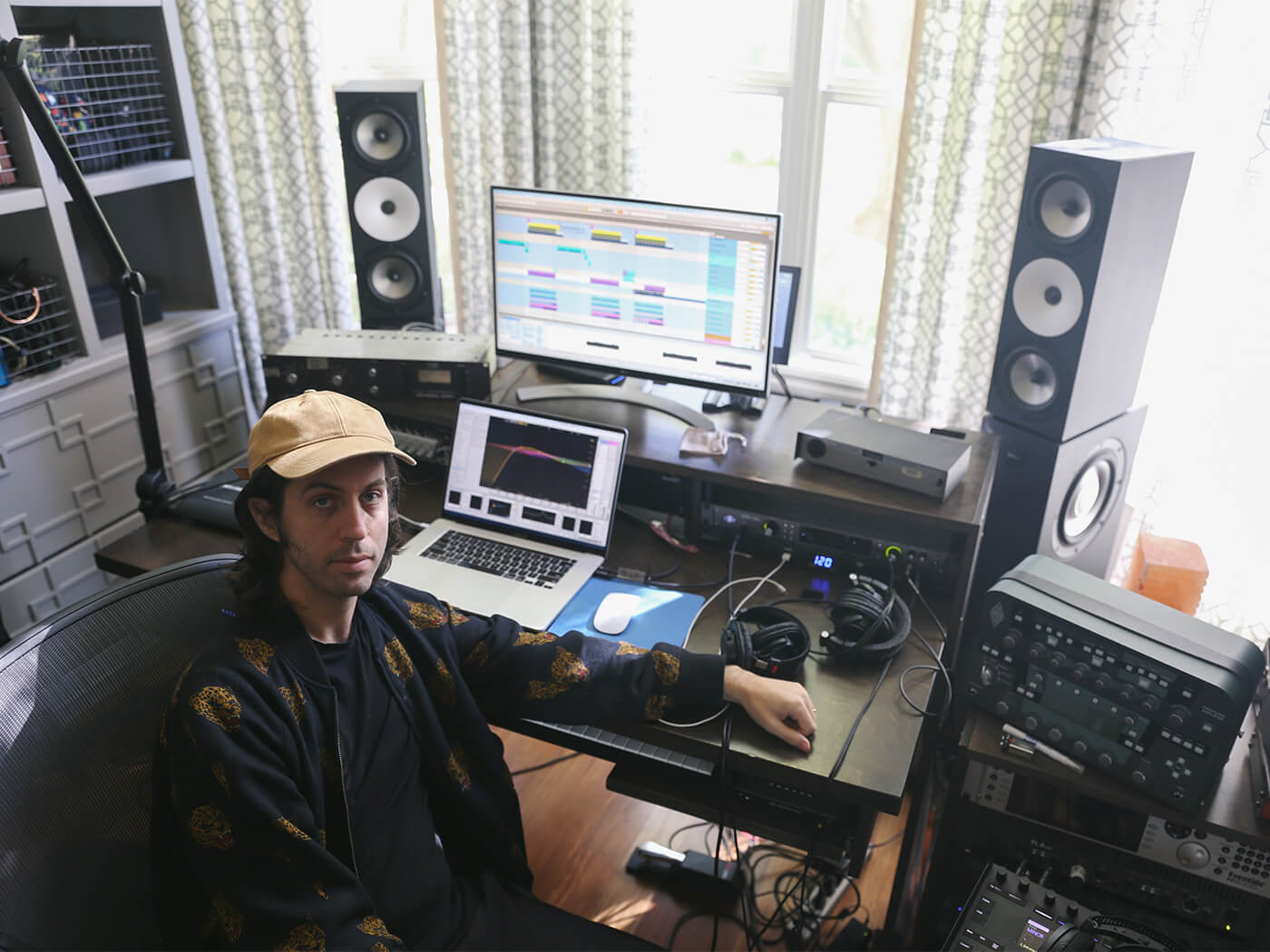
What is your favourite piece of gear?
I adore my vintage Neumann U67’s. They make everything sound like a record. I was watching the Get Back Beatles documentary and saw them just plastered everywhere on those sessions. It’s such a great all-around mic. I was doing some film scoring recently, and I think an old Gibson ES-5, into my tweed vibrolux, and a U67 feeding a Tab 76 pre was the best guitar tone I’ve ever gotten. I felt extremely spoiled by that signal chain.
What synth or effect can be heard the most on your new Mercury – Act 1? How did you use it?
There are so many different ways we do things, and hardly ever the same way twice, plus we work with lots of different producers. Whatever sounds good, we use, regardless of what we ‘should’ do. For example, I tried the solo on Dull Knives on my Kemper profiler for days, because it was there and easy. I couldn’t get it right at all. I went to the band studio, cranked a Fender Dual Professional and an Analogman Sunface, and I was there instantly.
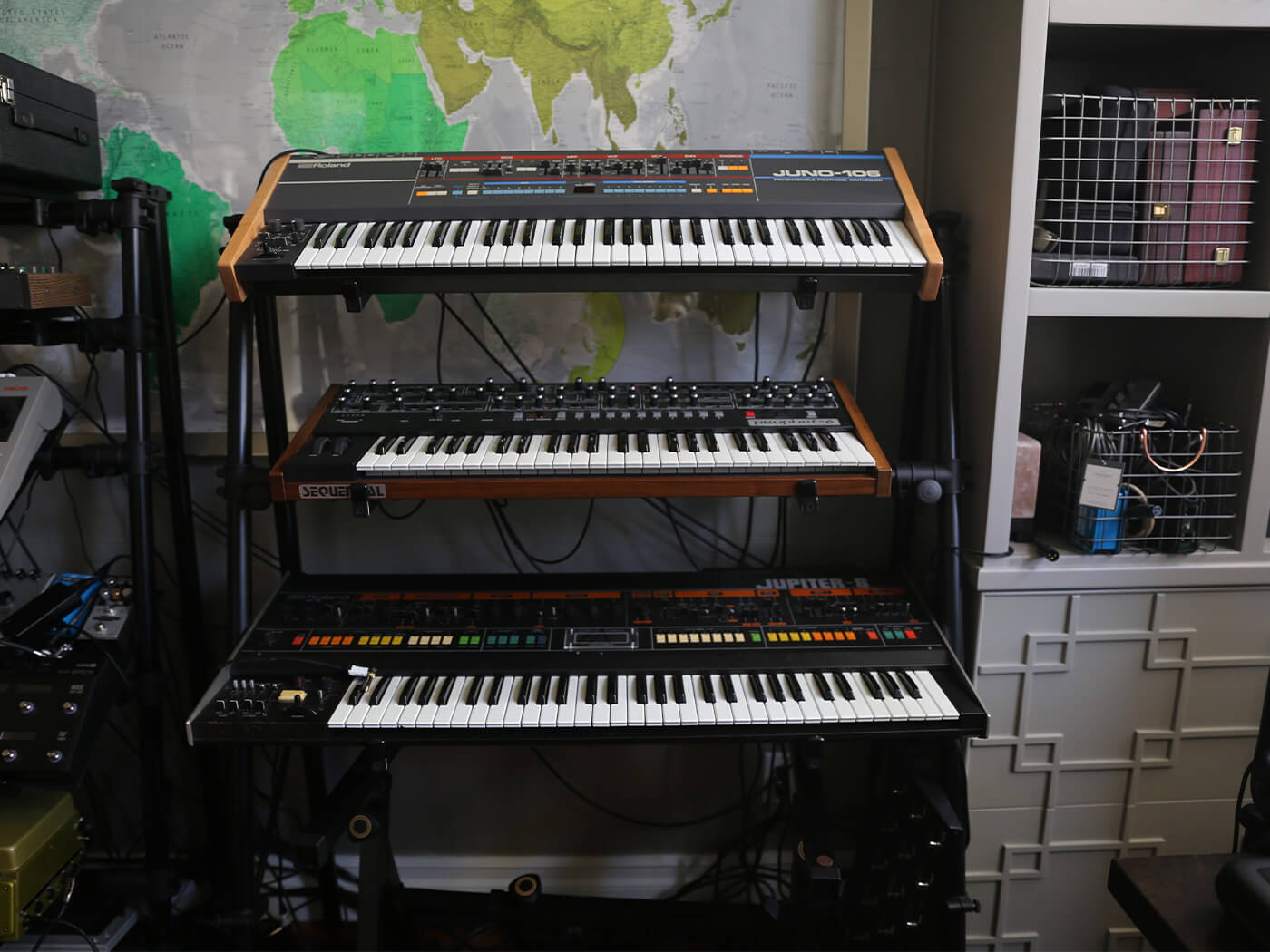
Then. for guitars on Wrecked, I tried using AC30’s and crazy expensive signal chains, and it wasn’t happening for me. I went home, plugged into Guitar Rig, and I had it within minutes. We just aren’t precious about anything. If it sounds right, it is right. I’ve had to learn that the hard way sometimes.
What is your dream piece of gear?
I had the chance to buy a CS-80 a while back for a great price. And I didn’t pull the trigger, and I regret it so much. Now, they’ve doubled in price. It’s just the coolest, most expressive, most impractically designed instrument ever conceived. I do have the little brother, the CS-60 which is probably better than I deserve anyway. So I’m happy.
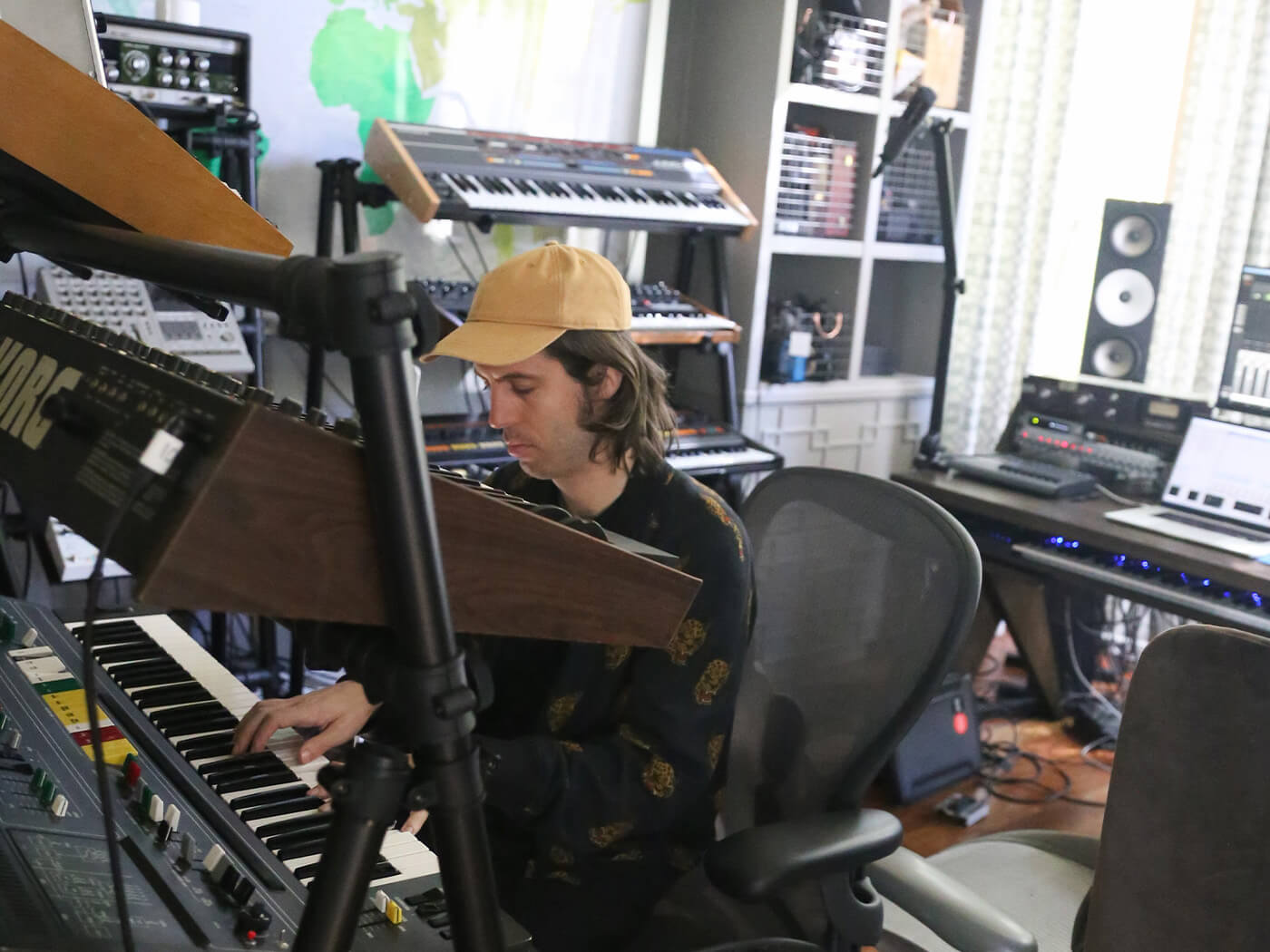
If you were left on a desert island, what one item would you take with you to make music with forever?
I’d take my cello. It was my first instrument as a kid. All that time on the island would give me time to master it. But the island would need to have pine trees so I could make homemade bow rosin…
What’s been the biggest investment in your studio? Was it worth it?
Definitely my speakers. I’ve been on a long journey to find the right monitors, and I’ve tried a lot. Most of the time, they’d sound good but I didn’t feel like they led me into making the right choices in production and mixing. Everything I did just sounded kind of like a sheen over everything, like a beautiful mask or something. It’s hard to explain.
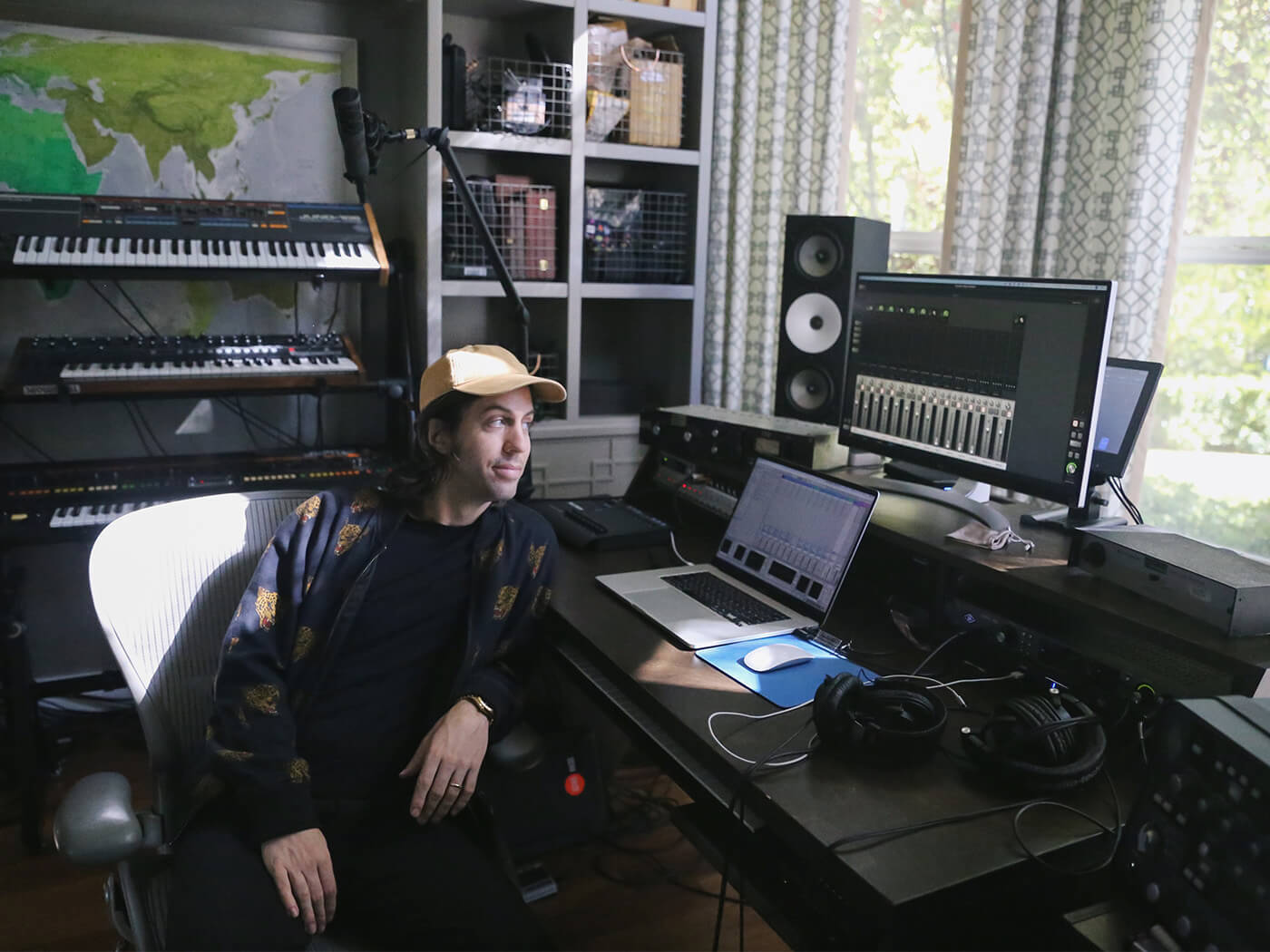
Then I tried these Amphion Two18s, and they just immediately worked for me. I don’t find them overly bright, which is good when you’re sitting in front of them for 12 hours a day. And they really let you know when something is right, especially in the crucial midrange – super honest and revealing. I love them. And the addition of the Basetwo25 LFE’s just lets me know what’s happening below 80Hz. It’s a great system. I don’t really believe in paid endorsements or anything like that, they just make great stuff.
How has your relationship with production changed in the past decade with Imagine Dragons?
I worry less about gear and more about the song. And believe me, I’m as big of a gear head as you’ll ever find. I just try to remember that this stuff only exists only so that it can help a song transcend ‘stuff’ altogether. That element should never hold anyone back. The things people can make on just a single laptop is insane. Just listen to anything Tennyson makes for proof of concept.
What is your top piece of production advice?
For a songwriter, be sure to give them space early on in the process. Just two to four things happening at once is gobs for most writers. They’re just looking for something to latch onto, not a polished, finished production with no space. I need to follow my own advice more on that one.
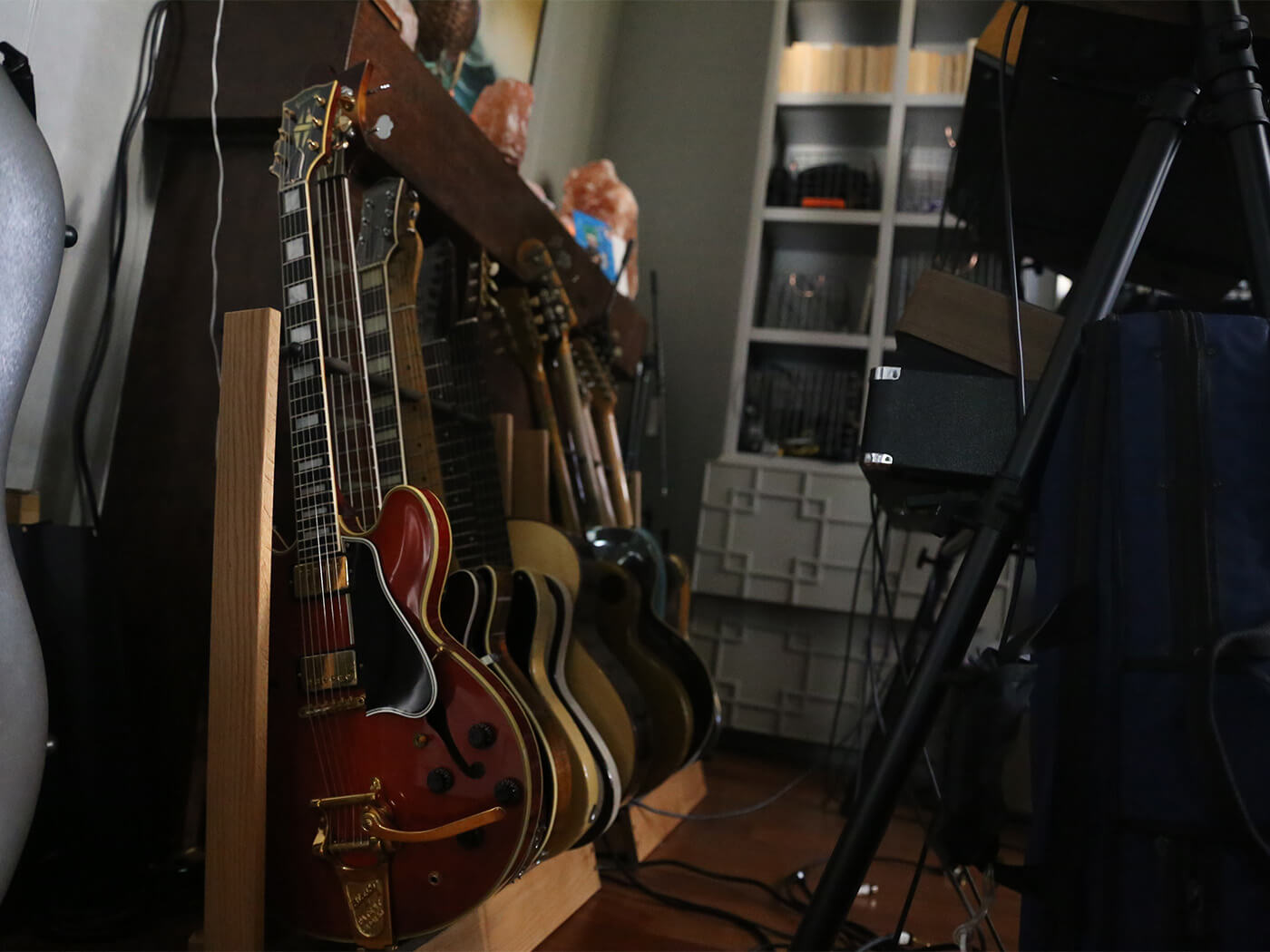
What is the one piece of advice you would give someone starting out building a studio?
With the important pieces you’ll use every single day: Buy it right the first time.
What’s in store for you and the band in 2022?
Lots of touring. New material too. You can check out dates on our website. We start rehearsals at the top of the year. It’s gonna be such a special show, we’re putting a lot of thought and love into it. It’s more than just a band playing songs, we’re really trying to make it special – something that can help heal the hard times we’ve all been through the past couple of years. We’d love to share it with everyone.
